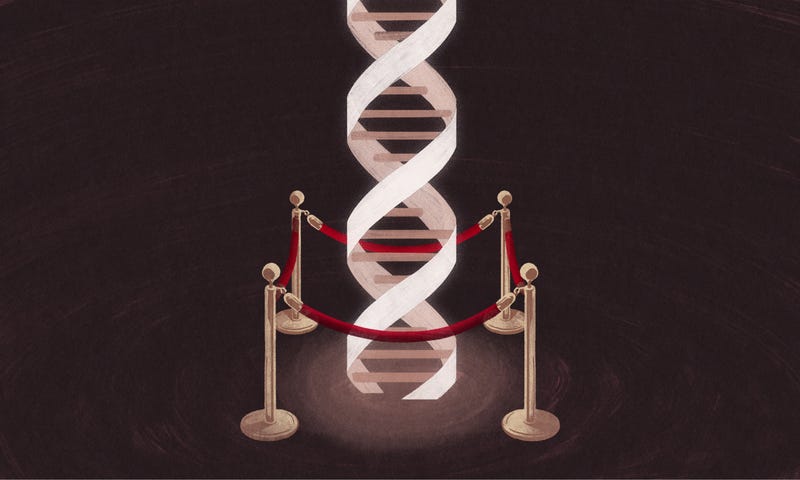 By Dr. Mercola May 17, 2017
By Dr. Mercola May 17, 2017
You may prudently care for your
skin each day, cleansing, exfoliating, moisturizing and hydrating. But,
did you know that the sandwich you had at lunch may be doing more damage
to your skin than skipping one of your nightly rituals?
Your skin is the largest organ in your body, responsible for
temperature control, protection and excreting toxins to name just a few.
Far from being an inactive covering for your internal organs, your skin
is an intricate system of nerves, glands and cell layers that plays a
fundamental role in your overall health and wellness.
If you want to protect your skin, age gracefully and reduce problem
breakouts, it is time to care for your skin in the same way you care for
your heart, control your weight and lift your mood. In other words, pay
attention to the foods you eat every day.
Wheat is one of the grains in many of the processed foods at your
grocery store that interferes with a healthy complexion and contributes
to psoriasis and eczema outbreaks. Proteins in wheat are responsible for
inflammation and changes to your gastrointestinal tract, nervous system
and cardiovascular system.
Number of People with Gluten Sensitivity Rising
The extreme form of gluten sensitivity,
celiac disease,
affects people differently. Over 200 symptoms have been attributed to
the condition. Approximately 3 million people in the U.S. suffer from
celiac disease
1 and close to 20 million suffer from gluten sensitivity.
2
Dr. Alessio Fasano is the director for Celiac Research and the chief of
pediatric gastroenterology and nutrition at Massachusetts General
Hospital. In a Celiac Disease Foundation blog, Fasano said:
3
"We also know that prevalence is rising and we're in the midst of
an epidemic. Based on our study it seems that prevalence has doubled
every 15 years in North America.
Why? I think it goes back to the microbiome. There are
antibiotics, our diet has changed, we travel more. There have been so
many changes in the past 50 years … We don't digest gluten completely,
which is unlike any other protein. The immune system seems to see the
gluten as a component of bacteria and deploys weapons to attack it, and
creates some collateral damage we call inflammation."
In the press release announcing the publication of his new book, "Gluten Freedom," Fasano said:
4
"We've shown now that gluten sensitivity actually exists. It's
moved from a nebulous condition that many physicians dismissed to a
distinctly identifiable condition that's quite different than celiac
disease. Gluten sensitivity affects six to seven times more people than
celiac disease."
5 Skin Conditions Triggered by Grains
There are several different skin conditions associated with the changes
that happen in your body when you eat wheat and other gluten-containing
foods. Whether you have celiac disease or a gluten sensitivity, you are
at higher risk for suffering these skin conditions when you eat gluten:
• Acne: This skin condition affects nearly 80 percent of all people between ages 11 and 30 in Western cultures.
5
In contrast, the condition is virtually nonexistent in primitive
societies. Hunter-gatherer communities in Paraguay were observed for
three years, during which no acne on individuals were found.
6
The type of symptoms from gluten sensitivity are different from
celiac disease, but both include an increase in adult onset acne.
7 Researchers have found a link between what you eat, how it affects your brain and your skin.
8
• Atopic Dermatitis: Researchers
have found that atopic dermatitis is three times more likely in people
with celiac disease and two times more likely in families who have
members with celiac disease.
9
• Psoriasis and Eczema: Psoriasis is uncomfortable and sometimes disfiguring, while
eczema is a term applied to a wide range of different rashes that are itchy, red and dry.
One-third of the U.S. population will experience eczema at some point in
their lives. Prevalence at least doubled between 1995 and 2008. Eczema
is driven in part by an allergic response and often linked to other
allergic reactions, such as asthma, allergic rhinitis and acid reflux.
10
Psoriasis often affects large areas of skin and is an immune reaction
linked to grain proteins, namely gliadin. In a study published in the
British Journal of Dermatology, participants who tested positive for
antibodies to gliadin improved when they were placed on a gluten-free
diet.
11
The National Psoriasis Foundation also recommends those with celiac
disease or a gluten sensitivity adhere to a gluten-free diet to reduce
or eliminate their symptoms.
12
• Recurrent Aphthous Stomatitis (RAS): Although they appear similar on the surface, these
mouth ulcers or canker sores
are not related to cold sores caused by the herpes virus. They can be a
minor annoyance or become so painful they inhibit eating and speaking.
In a paper published in BMC Gastroenterology,
13
the authors propose that RAS may be the only visual symptom of gluten
sensitivity and recommend patients presenting with RAS are evaluated
also for celiac disease.
• Vitiligo: In this skin
condition, the pigment is lost, causing white patches to appear.
Although not dangerous, it can have a profound effect on an individual's
life. A case report of a 22-year-old young woman with vitiligo was
published in Case Reports in Dermatology.
14
After previously undergoing medical therapy without success, she was
placed on a gluten-free diet. Partial, but rapid repigmentation occurred
in the first month and stabilized after four months of remaining
gluten-free. The authors suggest that diet modifications, including a
gluten-free diet, should be considered for treatment of vitiligo.
Read More







